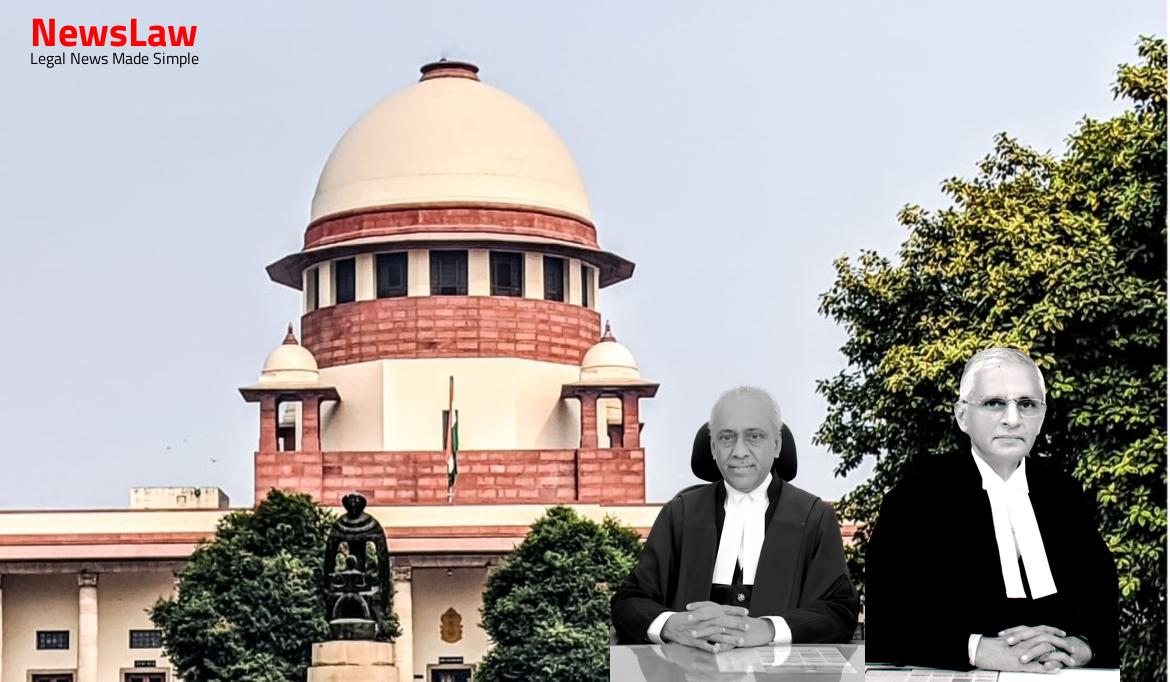This blog delves into the legal realm of the migrant worker crisis, shedding light on the court’s analysis and recommendations for addressing the challenges faced by migrant laborers. The focus is on the legal intricacies and policy suggestions put forth by various stakeholders in response to the plight of migrant workers during the ongoing pandemic.
Facts
- Shramik trains were running to transport migrant laborers to their destinations as per requisitions from different States.
- Ministry of Railways announced the running of special Shramik trains for migrant workers.
- After assessing the situation, the Government of India, Ministry of Home Affairs, allowed movement of migrant workers, pilgrims, students, and others stranded at different places.
- New guidelines for movement were issued by the Government of India, Ministry of Home Affairs on 01.05.2020.
- Affidavits and reports were filed by different States and Union Territories detailing measures taken and compliance with interim directions issued by the Court on 28.05.2020.
- Various interventions were made by individuals, organizations, and the National Human Rights Commission regarding the issues faced by migrant laborers.
- Railway Ministry appointed nodal authorities for different States.
- Central Government, State Governments, and all corona warriors responded to the pandemic.
- Intervenors suggested various measures to address the situation.
Also Read: Interpretation of Lease Agreement and Compulsory Registration
Arguments
- Mrs. Indira Jaising and Shri Maninder Singh highlight issues of poor conditions at quarantine centers, lack of proper facilities, and difficulties in food distribution for migrant workers.
- The State of West Bengal and NCT of Delhi are actively working to bring back migrant workers through systematic processes and providing necessary facilities like medical screening and help desks.
- States like Gujarat and Maharashtra have been transferring migrant laborers back to their native places, while also providing financial aid and shelter facilities.
- Efforts are being made to identify stranded workers and provide them with transportation to their native places, either by trains or road transport.
- Various State governments are setting up camps, shelter homes, and ensuring food distribution for migrant workers.
- The Central Government, through the Ministry of Railways, is coordinating the movement of migrant workers via Shramik trains and road transport, with no train fares being charged for Shramik trains from migrant workers.
- Different States are responding to the migrant worker situation by providing relief measures, employment opportunities, and facilitating the return of workers to their home states efficiently.
- Challenges like registration processes, availability of trains and buses, providing food and shelter to workers, and ensuring compliance with relief measures are being addressed by the States and Union Territories.
- NLS-Migrant Mazdoor Program is an initiative by alumni of NLS-India University, Bengaluru.
- National Human Rights Commission filed an application for intervention and it was allowed.
- National Human Rights Commission issued notices to various Government departments in six instances.
- Mr. Jaideep Gupta prayed for direct transfer by the Central Government for compensation payment by railways on account of death.
- Dr. Abhishek Manu Singhvi made suggestions regarding identification of stranded migrant labourers, setting up of reception/facilitation centres, formulation of a Nation-Wide plan, scheme for medicine, food, shelter, and more.
- Shri K.V. Vishwanathan mentioned the NLS-Migrant Mazdoor Program which airlifted 180 migrants from Mumbai to Jharkhand.
Also Read: Enhancing Compensation and Modifying Sentences: A Legal Analysis
Analysis
- States and Union Territories have been directed to maintain detailed records of migrant labourers including their skills, nature of employment, and earlier places of work.
- Counselling centers and help desks are to be established at block and district levels to provide information about government schemes and employment opportunities to migrant workers.
- States and Union Territories are required to submit additional affidavits within two weeks regarding schemes that can benefit migrant workers.
- Withdrawal of prosecutions/complaints under Section 51 of Disaster Management Act against migrant labourers who violated lockdown measures has been advised.
- Efforts to streamline vigilance and supervision to ensure proper implementation of schemes and policies for migrant workers.
- Encouraging states to consider withdrawing prosecutions against migrant workers who may have violated lockdown measures.
- Highlighting the need for efficient implementation of policies and schemes to benefit migrant workers.
- Issuing directions for swift identification and transportation of stranded workers back to their native places.
- Recognition of the efforts of non-governmental organizations and individuals in assisting migrant workers during the crisis.
- Recommendation for decentralized registration processes to facilitate the registration of migrant workers at local administrative centers.
- Request for publicity of schemes through local media channels to ensure awareness among migrant workers.
- Acknowledgement of the completion of a significant portion of the transportation process for stranded workers by the State Governments.
Also Read: Transfer of Writ Petitions for Chartered Accountants’ Tax Audit Guidelines
Case Number: SMW(C) No.-000006 / 2020



